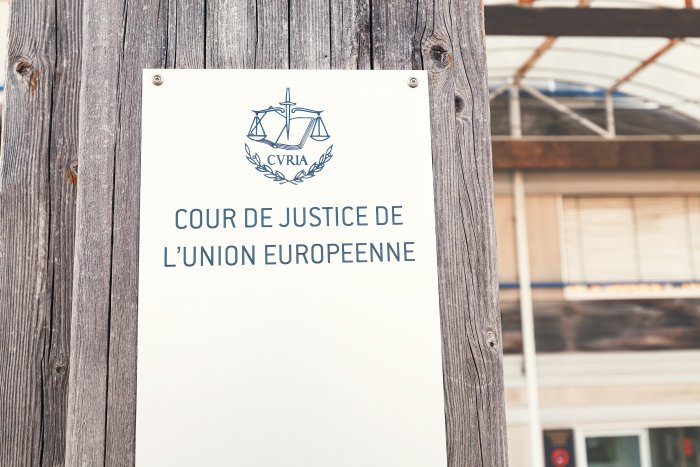How is GVH responding to the pandemic, and what areas is it focusing on?

The Budapest Business Journal talks with Csaba Balázs Rigó, President of the Hungarian Competition Authority (GVH) about GVHʼs response to the coronavirus pandemic and the areas it is currently focusing on.
BBJ: You were appointed as the leader of the GVH on April 15. For what was this more than half a year at the helm of the Competition Authority enough?
Csaba Balázs Rigó: The past seven and a half months were enough for a large number of things. Following my appointment, I introduced important cost-efficiency, human resources, and procedural measures, after which I began the transformation of the organizational structure in order to ensure that the GVH is able to respond quickly and effectively to the new challenges faced by consumers and enterprises. We are building a cooperative national authority with my colleagues, which pays attention to Hungarian people and families and the procedures of which address not only problems that fall within the traditional scope of competition law but everyday issues as well.
BBJ: You took control of the Competition Authority amidst a global pandemic, which unfortunately does not seem to be subsiding. To what extent does this affect work at the Authority?
CsBR: We certainly cannot ignore the pandemic, which significantly affects the economy as well. Unfortunately, the outbreak was shortly followed by the emergence of unfair commercial practices preying on consumers’ fears, against which we immediately picked up the fight. Following the appearance of COVID-19 in Hungary, the GVH performed a quick comprehensive investigation and since several objectionable practices were identified, we published a notice emphasizing the importance of exercising caution when shopping online. At the same time, we drew the attention of enterprises distributing products related to the pandemic, such as masks, sanitizers, etc., to the stricter requirements concerning the development of responsible communication practices. In addition, the GVH also participated in the joint European action concerning the pandemic, as a result of which several millions of misleading advertisements were removed from online space.
Unfortunately, not all companies complied with our warning, forcing us to initiate proceedings against several undertakings, which allegedly engaged in unfair practices after the emergence of the virus; a portion of these investigations are still in progress today. The justified and successful nature of our consumer protection efforts related to COVID-19 is evidenced by the fact that the European COVID-19 working group of the ICPEN (International Consumer Protection and Enforcement Network), which incorporates the consumer protection authorities of 64 countries, appointed the representative of the Hungarian Competition Authority to present the experiences of the European authorities at the ICPEN conference held in Canada. We are proud to know that our colleague is participating in this discussion of the topic as the sole European presenter. Our country is in need of this type of recognition.
BBJ: To what extent is the response to the pandemic taking resources away from other areas within the Authority?
CsBR: It does not take away any resources; all areas previously treated as priorities, such as the fight against cartels and the elimination of abuses of dominant position, continue to be in the focus of our efforts. However, it is important to note that these are wide-reaching cases, which occasionally affect large numbers of market operators, and may last several years due to legal constraints. We have just recently players two large-scale investigations. The first one was a proceeding against the three most important players in the domestic cement market due to an alleged abuse of dominant position. The Hungarian cement market is a so-called oligopolistic market with an exceptionally high level of transparency, which can reduce the intensity of competition due to the small number of players present on the market. Consequently, the above-mentioned transparency allows these three companies to adjust their behavior to match those of the others even without covert restrictive market practices (also known as a cartel), thus jointly influencing market prices and preventing new competitors from entering the market while acting in a sort of tacit agreement. This can be considered unlawful since the three of them together are in a dominant position; they are almost unavoidable on the Hungarian cement market. The outcome of the case could have an enormous effect on the Hungarian construction industry since the price of cement affects every single development project.
A second case that deserves a mention is the recently initiated sector inquiry in the HoReCa sector. The domestic players belonging to the sector of hotels, restaurants, pubs, and catering units, that is the HoReCa sector, have been hesitant to work with new supply partners in the past years. This hesitation is caused by the fact that the industry is tangled in a web of supplier agreements containing clauses that encourage catering units to offer the products of only a single or a limited number of undertakings to their guests. This phenomenon is typically advantageous only for beverage suppliers with a large portfolio and significant capital strengths while serving as a barrier to entry for new manufacturers and suppliers and limiting the expansion of smaller players. These processes are unambiguously harmful since they may limit consumer choice and increase prices, thus negatively affecting guests. They may even prove harmful to the catering units themselves in the long term since the suppression of alternative sources of supply may reduce their ability to switch and increase their vulnerability. The pandemic situation, which may severely affect hotels, restaurants, pubs, and catering units, lends special significance to this issue. The GVH had already investigated this market in the past; however, individual proceedings had not proven to offer a sufficient level of insight into these competition-related problems. However, the sector inquiry, which is based on mandatory submission of data, will reveal the framework of business relationships, the legal clauses applied, the characteristics of distribution, as well as the effects thereof on the strategies of market operators, the prices, and the welfare of consumers in a comprehensive manner.
The pandemic not only did not take away resources from other areas but I can already tell that we got more done this year and took on additional tasks in spite of the significantly reduced workforce. In September, I founded the Workshop for Economic Development and Competition Advocacy within the GVH, of which I am also a member myself. The aim of the Workshop is to formulate recommendations regarding the promotion of fair competition on the market. Furthermore, I also personally participate in the work of the Economic Operative Committee, which is headed by Minister Mihály Varga, as well as the meetings of the Digital Freedom Commission, chaired by Minister Judit Varga.
BBJ: Digital markets have also been in the spotlight in the past years. Is this expected to change?
CsBR: The dynamic nature of the digital markets and the special characteristics of consumer decision-making on such markets continue to necessitate a specialized priority strategy in this area. The GVH has not been afraid to face the corporate giants of these markets, such as Apple, Google, and Facebook, and I guarantee that this is not going to change in the future either. For example, the Dutch accommodation reservation website, Booking.com, which, among other things, was aggressively exerting psychological pressure on users to get them to make their bookings as soon as possible, received the largest consumer protection fine in the history of the GVH: 2.5 billion Hungarian forints. This amount might seem small compared to the size of the multinational corporation; however, it is in fact not so: the competition council proceeding in the case took 10% of the revenue generated on Hungarian bookings in the previous year into account, the loss of which should definitely serve as a sufficient deterrent for the company, at least in the case of the Hungarian market. We initiated proceedings against other prominent players as well, which are still in progress today: I could mention Viber, where the subject of the investigation is the use of personal information as a form of payment or the Chinese-owned and US-based TikTok. The latter is a video sharing platform popular with the youth, especially children, which is probably withholding important information regarding its operation, such as the scope of the processed data and what they are used for. In addition, the operator is presumably not exercising due care in reducing the exposure of children and minors to advertisements. The GVH will continue to focus on the digital markets, especially measures promoting the digitalization of finance, in the future as well since we must pay attention to the new types of practices intent on misleading consumers, the digital comparison websites facilitating the choice between financial products, as well as attacks and cyber threats aimed at obtaining the personal and financial information of customers.
BBJ: Besides the investigations, what other plans does the Competition Authority have for next year?
CsBR: An upcoming international event is providing us with plenty of work, albeit work that we are happy to do: In 2021, Hungary is going to host the annual conference of the International Competition Network (ICN), which incorporates competition authorities from around the world. ICN is an international organization which operates as a continuous informational and educational forum and holds a conference in one of its member states each year. This annual meeting is going to take place in Budapest in the middle of October next year, by which time we will hopefully have the pandemic behind us. As I mentioned, ICN is a worldwide organization; therefore, its conference is also global in scale: we are expecting to receive approximately 500 competition law experts from 139 countries in Budapest, including the heads and senior officers of the various competition authorities. According to the plans, an additional 2000 people will be following the event live on the internet from around the globe.
Organizing such a large-scale professional event is not a simple task, especially in the current uncertain environment, yet it is a tremendous honor for our country. The opportunity to organize this conference shows that the work of the Hungarian competition authority is recognized in international competition law circles and we would like to increase this professional respect even further with the help of an unforgettable event. The conference was supposed to be held by the competition authority of the United States in Los Angeles this year; however, it was held online due to the COVID-19 pandemic.
I hope that by next fall, all the currently obligatory protective measures will be long forgotten and we will be able to focus on nothing else but professionalism to hold a successful global conference on competition law in Budapest, which will not be without the charm of personal meetings and networking and as a result many experts visit Hungary with their loved ones again in the future.
SUPPORT THE BUDAPEST BUSINESS JOURNAL
Producing journalism that is worthy of the name is a costly business. For 27 years, the publishers, editors and reporters of the Budapest Business Journal have striven to bring you business news that works, information that you can trust, that is factual, accurate and presented without fear or favor.
Newspaper organizations across the globe have struggled to find a business model that allows them to continue to excel, without compromising their ability to perform. Most recently, some have experimented with the idea of involving their most important stakeholders, their readers.
We would like to offer that same opportunity to our readers. We would like to invite you to help us deliver the quality business journalism you require. Hit our Support the BBJ button and you can choose the how much and how often you send us your contributions.








